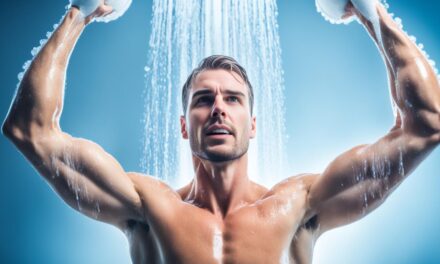Imagine this: it’s the end of a long, exhausting day. You’re physically drained, mentally fatigued, and all you want to do is curl up on the couch with a pint of ice cream. Sound familiar? We’ve all been there. The struggle to maintain healthy habits and achieve weight loss can be overwhelming, especially when relying solely on willpower.
But what if there was a way to make weight loss easier, more effortless, and dare we say, enjoyable? The answer lies in the power of automation. By automating your healthy habits, you can create a sustainable approach to weight loss that doesn’t require constant motivation.
So, how does automation work? It’s about setting up systems and routines that make healthy choices the default option. Rather than relying on willpower to make the right decisions every day, you create an environment that supports your goals and nudges you towards success.
Throughout this article, we’ll explore strategies for automating your healthy habits and achieving weight loss without willpower. We’ll provide practical tips and techniques that you can implement in your daily life to make weight loss feel effortless.
Key Takeaways:
- Automating healthy habits can make weight loss easier and more sustainable.
- Creating routines and systems that support your goals can help eliminate the need for constant willpower.
- By setting up a supportive environment, you can make healthy choices the default option.
- Throughout this article, we’ll share practical tips for automating your healthy habits.
- Stay tuned to discover how to achieve weight loss without relying on willpower.
Why Willpower Doesn’t Work for Weight Loss
When it comes to weight loss, relying solely on willpower is like trying to catch a unicorn with a butterfly net – it’s just not going to happen. Sure, we all think we just need that moment of motivation or willpower to kickstart our healthy eating and exercise habits, but the reality is much different.
According to registered dietitian Katie Gill, willpower alone is not a reliable strategy for sustainable weight loss. In the long run, counting on your willpower to resist temptations and make healthy choices every day is almost guaranteed to backfire. Why? Because willpower is a finite resource, and it gets drained throughout the day as you make decisions. This phenomenon is known as decision fatigue.
“Every decision you make, whether it’s as simple as what to wear or as complex as what to eat for lunch, depletes your willpower,” says Gill.
Think about it – by the end of a long day filled with choices, your willpower is running on fumes. And that’s when those pesky cravings and unhealthy temptations start to feel irresistible. But fear not, for there is a way to overcome this willpower struggle.
The key lies in automating your decision-making process. By creating healthy habits and routines that require minimal mental effort, you can bypass decision fatigue and make weight loss virtually effortless.
Automate Your Way to Success
So how exactly do you automate decision-making for weight loss? It starts with creating a supportive environment that nudges you toward healthy choices without requiring constant willpower.
- Create a Meal Plan: Plan out your meals and snacks in advance, so you don’t have to think about what to eat at every mealtime. This will help prevent impulsive and unhealthy food choices.
- Stock Your Kitchen: Fill your pantry and refrigerator with nutritious foods that are easy to grab and prepare. Having healthy options readily available reduces the need to rely on willpower when hunger strikes.
- Schedule Your Workouts: Treat your exercise sessions as non-negotiable appointments. Set aside specific times in your calendar for physical activity, making it a habit rather than a decision.
By automating these decision points, you remove the mental burden of making healthy choices every day. Without relying on willpower, you’ll find it easier to stick to your weight loss goals and make sustainable progress.
Remember, weight loss should be a marathon, not a sprint. By automating your decision-making and eliminating the need for constant willpower, you can create a healthy, sustainable lifestyle that supports long-term success.
“Think of it like having a personal assistant who takes care of all the decisions for you. No matter how tired or stressed you are, the right choices are already made,” explains Gill.
Strategies for Automating Healthy Habits
To automate healthy habits for weight loss, you need to think beyond sheer willpower. Creating sustainable routines is the key to long-term success. Let’s explore two effective strategies that can help you achieve your weight loss goals: habit tracking and environment optimization.
Habit Tracking
“The first step toward change is awareness.”
One of the most powerful tools for healthy habit automation is habit tracking. By monitoring and recording your daily habits, you gain valuable insights into your behaviors and can make adjustments as needed. Start by tracking specific areas related to weight loss, such as your eating habits and exercise routine. This can be as simple as using a journal or a mobile app.
Remember, consistency is key. Make it a daily practice to record your meals, snacks, and exercise activities. And don’t forget to include any notable factors that may have influenced your choices, like stress or social events.
By tracking your habits, you can identify patterns and pinpoint areas that need improvement. For example, if you notice you always reach for unhealthy snacks in the afternoon, you can take proactive steps to replace them with healthier options.
Environment Optimization
“Your environment shapes your habits.”
Your environment plays a significant role in shaping your habits. By setting up your surroundings to support healthy choices, you can automate positive behaviors without relying solely on willpower.
One way to optimize your environment is through meal prepping. Dedicate some time each week to plan and prepare nutritious meals in advance. Having healthy, ready-to-eat options readily available makes it easier to make wise food choices, even on busy days.
Additionally, keep your pantry stocked with wholesome snacks like fresh fruits, nuts, or yogurt. When the urge to indulge strikes, you’ll have healthier alternatives right at your fingertips.
Another crucial aspect of environment optimization is establishing a regular exercise routine. Set aside specific times each week to engage in physical activity. Whether it’s going for a run, attending a fitness class, or doing home workouts, consistency is key. Make it an unbreakable appointment with yourself.
To sum it up, habit tracking and environment optimization are powerful strategies for automating healthy habits. With habit tracking, you gain awareness and insight into your behaviors, enabling you to make targeted improvements. By optimizing your environment, you create an atmosphere that naturally promotes healthy choices and makes achieving your weight loss goals easier.
| Habit Tracking | Environment Optimization |
|---|---|
| ✔️ Monitor and record daily habits | ✔️ Engage in meal prepping |
| ✔️ Identify patterns and make adjustments | ✔️ Keep healthy snacks readily available |
| ✔️ Use a journal or mobile app for tracking | ✔️ Establish a regular exercise routine |
The Role of Exercise and Diet
When it comes to achieving your weight loss goals, exercise and diet play a crucial role. Incorporating easy weight loss tips into your daily routine can make a significant difference in your journey towards a healthier you!
First and foremost, regular exercise is essential for weight loss and weight maintenance. Aim to engage in at least 30 minutes of moderate physical activity each day. Whether it’s going for a brisk walk, cycling, or trying a new workout routine, exercise helps burn calories and increases your metabolism, supporting your weight loss efforts.
But let’s not forget about the importance of a mindless weight loss diet! Focus on maintaining a balanced eating plan that includes plenty of protein. Not only does protein help reduce appetite, but it also promotes fullness, making it easier for you to control your calorie intake. Incorporating healthy habits and a variety of nutrient-dense foods into your meals can lead to effortless weight loss.
The Importance of Self-Monitoring and Accountability
When it comes to achieving weight loss without motivation, self-monitoring and accountability are key. By staying aware of your progress and behaviors, you can make meaningful changes that lead to successful results.
Self-monitoring is a valuable tool for weight loss. One effective way to track your progress is by regularly weighing yourself. Studies have shown that those who weigh themselves frequently tend to consume fewer calories and experience better weight management outcomes. By stepping on the scale regularly, you can stay motivated and adjust your habits if needed.
In addition to self-monitoring, holding yourself accountable is crucial on your weight loss journey. It’s easy to give in to temptation or make excuses, but by staying accountable, you can stay focused on your goals. Consider joining a weight loss group where you can share your experiences, challenges, and successes with others who are on the same journey. This sense of community and support can provide the motivation you need to keep going.
“Surrounding yourself with like-minded individuals who share your weight loss goals can be incredibly empowering,” says Dr. Emily Thompson, a certified health psychologist. “Their support and encouragement can make all the difference in your weight loss journey.”
If you prefer more personalized support, enlisting the help of a weight loss coach can be beneficial. A coach can provide guidance, accountability, and motivation tailored to your unique needs. They can help you develop strategies to overcome challenges, establish healthy habits, and stay on track for long-term success.
Remember, weight loss is a journey, and having a support system in place can make all the difference. By monitoring your progress and seeking accountability, you’ll be well on your way to achieving your weight loss goals without relying on motivation alone.
The Benefits of Self-Monitoring and Accountability
| Benefits of Self-Monitoring | Benefits of Accountability |
|---|---|
| Increased awareness of behaviors | Improved motivation |
| Identifying patterns and triggers | Greater adherence to healthy habits |
| Ability to make adjustments as needed | Enhanced self-discipline |
| Fewer calorie consumption | Supportive and empowering environment |
By practicing self-monitoring and seeking accountability, you can harness the power to achieve weight loss without relying solely on motivation. These strategies will help you stay focused, make informed choices, and create healthy habits that last a lifetime. So, take control of your weight loss journey today and enjoy the benefits of a sustainable, motivated, and successful transformation.
Conclusion
So, you’re ready to achieve weight loss without relying on willpower? Great! The key is to automate healthy habits that support your goals. By implementing strategies such as habit tracking, creating a supportive environment, and engaging in regular exercise, you can make weight loss effortless.
Habit tracking allows you to monitor and adjust your behaviors, making it easier to stay on track. Set up reminders and make a note of your progress to stay motivated. Additionally, create a supportive environment by meal prepping, stocking up on healthy snacks, and scheduling regular exercise sessions. Making healthy choices becomes effortless when your surroundings support them.
Remember, self-monitoring and accountability play a crucial role in weight loss success. Regularly weigh yourself to stay aware of your progress and behaviors. Seek support through weight loss groups or consider working with a coach to keep you motivated and accountable. With these strategies in place, you can achieve your weight loss goals without relying on constant motivation.
FAQ
Is relying on willpower an effective strategy for weight loss?
Why doesn’t willpower work for weight loss?
How can I automate healthy habits for weight loss?
What are some examples of habit tracking?
How can I create a supportive environment for weight loss?
How important is exercise for weight loss?
What role does diet play in weight loss?
How can self-monitoring contribute to weight loss?
How can I stay accountable during my weight loss journey?
Can I achieve weight loss without constant motivation?
MORE SOURCES TO READ:
- https://www.healthline.com/nutrition/maintain-weight-loss
- https://nutritionistnear.me/blog/weight-loss-without-willpower-with-katie-gill-rd-39
- https://eightify.app/summary/health-and-wellness/lose-weight-effortlessly-3-key-strategies-jason-fung
![]()














Recent Comments